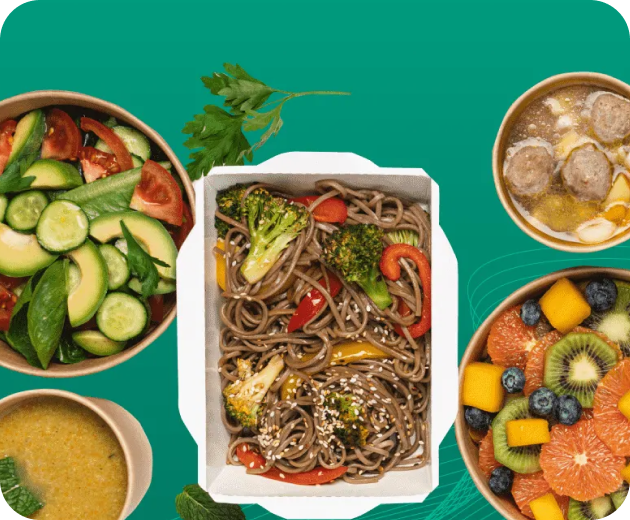The Role of Sustainable Food Trends in Product Development
Sustainable food trends are reshaping how we develop and consume products. With a growing focus on environmental responsibility and health, consumers are seeking nutritious, sustainably sourced foods.
This shift drives innovation in the food industry, encouraging practices that reduce environmental impact and promote sustainability.
This document explores how sustainable food trends influence product development in the food and beverage industry.
What is Sustainable Food?
Sustainable food is produced in a way that minimizes environmental impact while promoting social and economic benefits.
This includes considerations such as reducing greenhouse gas emissions, conserving natural resources, and supporting fair labor practices.
The concepts of sustainable food sourcing and production are gaining traction globally, as people acknowledge the dual benefits of protecting the planet and enhancing their well-being.
The Rise of Sustainable Food Trends
Increasing awareness of the environmental impact of food production, consumption, and waste has led to a surge in demand for sustainable food options.
This growing consumer sentiment has created a vast opportunity for businesses, particularly in the food and beverage industry, to adapt and accommodate these preferences in their product development strategies.
Innovative businesses are now using food intelligence platforms like Tastewise to help them identify and understand emerging market trends and consumer behavior patterns.
This AI-driven platform enables food and beverage companies to stay ahead of the curve and navigate the rapidly evolving consumer landscape more effectively.
The Role of Sustainable Food Trends in Product Development
Meeting customer expectations is crucial for the success and growth of any business. For the food and beverage industry, satisfying consumers’ tastes and preferences is the top priority. Sustainable food trends have rapidly emerged as a factor shaping food and beverage.
We’ll dive into the role of sustainable food trends in product development and explore how businesses can leverage these trends to develop innovative, eco-friendly, and consumer-conscious products.
Sustainability as a Key Driver in Product Development
Satisfying the consumer demand for sustainably produced food is an ever-increasing challenge for food and beverage manufacturers.
The growth of this trend has led many companies to re-examine their product development process and consider embracing these environmentally friendly practices in their production and sourcing methods.
What are the Sustainable Food Trends in 2024?
As we look towards the future, sustainability will continue to be a major focus in the food industry. Some emerging food trends that align with sustainable practices include:
Regenerative agriculture
Regenerative agriculture is a holistic approach to farming that aims to improve soil health and promote biodiversity.
By implementing regenerative practices such as crop rotation and minimal tillage, farmers can help sequester carbon and reduce the environmental impacts of conventional agriculture.
Locally-sourced ingredients
The demand for locally sourced ingredients will likely continue to grow as consumers become more conscious of their carbon footprint and support local communities.
This trend also supports small-scale farmers and reduces the carbon emissions associated with transporting food long distances.
Food waste reduction
Advancements in technology have also made it possible to reduce food waste through innovative solutions such as smart packaging, food tracking apps, and precision agriculture. These technologies can help improve supply chain efficiency and minimize food loss.
Farm-to-table practices
Farm-to-table practices involve sourcing ingredients locally, often from small-scale farmers who use sustainable growing methods.
This not only reduces the carbon footprint of transportation but also supports local economies and promotes community resilience. By using fresh, seasonal ingredients, farm-to-table practices also ensure higher nutrient content in foods.
Organic and non-GMO
Organic and non-genetically modified organism (non-GMO) foods have become increasingly popular in recent years, with consumers seeking products free from synthetic pesticides and chemicals.
This trend has led to an increase in organic farming practices, which are more environmentally friendly and promote biodiversity.
Plant-based diets
More people are adopting plant-based diets for health and environmental reasons. As a result, there is a growing demand for sustainable plant-based alternatives to traditional animal-based products.
This has spurred innovation in the food industry, leading to the development of new plant-based options that mimic the taste and texture of meat and dairy products.
Cultivated meat
Cultivated meat, also known as lab-grown or cell-based meat, is another emerging trend in the food industry.
This involves growing animal cells in a lab to produce meat without the need for traditional livestock farming methods. Cultivated meat has the potential to significantly reduce greenhouse gas emissions and address ethical concerns surrounding factory farming.
Sustainable seafood
Overfishing and unsustainable fishing practices have led to declining fish populations and damaged marine ecosystems.
To combat this issue, there has been a rise in sustainable seafood initiatives, such as certification programs that ensure responsible fishing practices and support sustainable fisheries.
Diverse grains and ancient grains
In addition to the popular staples like wheat, corn, and rice, there is a growing interest in diverse grains and ancient grains.
These include quinoa, amaranth, millet, and teff, which offer unique flavors and nutritional benefits. Incorporating these grains into our diets can also help promote crop diversity and support small-scale farmers.
Ethical and humane practices
Consumers increasingly demand transparency in the sourcing and production of their food, particularly regarding animal welfare standards.
As a result, food and beverage companies are paying closer attention to the animals’ welfare in their products and implementing ethical treatment and sourcing policies.
The Business Benefits of Sustainable Product Development
Embracing sustainable food trends in product development not only fulfills consumers’ desires but also yields several benefits for businesses:
- Consumer loyalty: Aligning with consumer values helps build brand loyalty and enhances trust in a company’s products. Companies prioritizing sustainability are likely to see higher satisfaction and repeat customer purchases.
- Improved brand reputation: Showing commitment to sustainable practices can elevate a company’s reputation in the eyes of consumers and other stakeholders. A positive perception may open doors for new business opportunities and collaborative partnerships.
- Cost savings: Using eco-friendly production processes and waste reduction initiatives can result in significant cost savings for food and beverage companies, providing them with a competitive advantage.
- Regulatory compliance: Many local and international regulations require businesses to adopt sustainable food production practices. Companies that invest in sustainable product development are better positioned to meet compliance standards, helping them avoid penalties and disruptions in business operations.
What is the Future of Food Sustainability?
The future of food sustainability is likely to involve continued efforts towards reducing carbon footprint, resource conservation, and animal welfare in the food industry. Some potential developments include:
- Innovative farming techniques: The adoption of precision agriculture through technology such as sensors and drones can help reduce waste and optimize resource use.
- Alternative protein sources: With the growing demand for sustainable options, plant-based proteins and lab-grown meat are gaining popularity as alternatives to traditional animal-based products.
- Circular economy models: Companies may increasingly adopt circular economy principles, minimizing waste by recycling or repurposing materials used in production.
- Collaboration and transparency: Collaborative initiatives among food industry stakeholders, including producers, retailers, and consumers, can help drive positive change toward sustainability. Transparency in supply chains will also become increasingly important to ensure sustainable sourcing of ingredients.
- Consumer education: As consumer awareness and demand for sustainable products increase, companies may need to educate their customers on the environmental impact of their choices and how they can make more sustainable decisions when it comes to food consumption.
FAQs
Trends like plant-based eating and upcycling ingredients align consumer desire with sustainability goals, encouraging brands to innovate responsibly.
Key trends include regenerative agriculture, zero-waste practices, vertical farming, and carbon labeling. They reflect growing consumer concern over food’s environmental footprint.
Plant-based whole foods like lentils, oats, and seasonal vegetables have the lowest environmental impact. Local sourcing and minimal processing boost sustainability.
Flexitarian and plant-forward diets are among the most sustainable, offering environmental benefits while remaining accessible and culturally inclusive.
Regenerative agriculture, hydroponics, and agroforestry top the list. These practices rebuild soil, conserve water, and increase long-term resilience.
Final Thoughts
Overall, the future of food sustainability will require a collective effort from businesses, consumers, and policymakers to create a more environmentally conscious food system.
Companies that prioritize sustainability in their operations will not only contribute to a healthier planet but also gain a competitive advantage in the growing market for sustainable products.
Consumers also have the power to drive change by making conscious choices and supporting companies that prioritize sustainability.
With these developments, it is possible for the food industry to reduce its impact on the environment and promote a more sustainable future for all.




